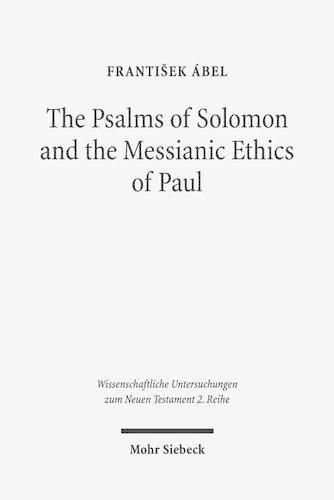Readings Newsletter
Become a Readings Member to make your shopping experience even easier.
Sign in or sign up for free!
You’re not far away from qualifying for FREE standard shipping within Australia
You’ve qualified for FREE standard shipping within Australia
The cart is loading…






Frantisek Abel explores one of the topical issues of Paul’s theology, namely the role and influence of the Jewish Pseudo-epigraphs, literature written during Greek and early Roman periods (4th century BCE to the 2nd century CE), on Paul’s theological thinking. Within this corpus the idea of eschatological concepts, such as the concept regarding the coming of the Messiah and the Last Judgment in particular, arises frequently. It is similar in the case of the Psalms of Solomon with the Last Judgment as the main topic of this pseudepigraphon. Through close analysis and exploration of particular parts of this work, the author proposes that this deuterocanonical writing could form a considerable background for the proper understanding of Paul’s messianic ethics. From this point of view, Paul’s teaching on justification should be understood as one that is reflective of God’s grace, while at the same time expressing faith and deeds as necessary for salvation.
$9.00 standard shipping within Australia
FREE standard shipping within Australia for orders over $100.00
Express & International shipping calculated at checkout
Frantisek Abel explores one of the topical issues of Paul’s theology, namely the role and influence of the Jewish Pseudo-epigraphs, literature written during Greek and early Roman periods (4th century BCE to the 2nd century CE), on Paul’s theological thinking. Within this corpus the idea of eschatological concepts, such as the concept regarding the coming of the Messiah and the Last Judgment in particular, arises frequently. It is similar in the case of the Psalms of Solomon with the Last Judgment as the main topic of this pseudepigraphon. Through close analysis and exploration of particular parts of this work, the author proposes that this deuterocanonical writing could form a considerable background for the proper understanding of Paul’s messianic ethics. From this point of view, Paul’s teaching on justification should be understood as one that is reflective of God’s grace, while at the same time expressing faith and deeds as necessary for salvation.